It’s New Year’s Day and I’m in Lisbon. I arrived Sunday 20th, the day the British were declared persona non grata by most of the world as a consequence of the rapid spread of the “English strain” of the Coronovirus. Our easyJet flight from Gatwick was one of the last permitted ahead of an exclusion for travellers from the UK for non Portuguese or non residents.
On arrival that night we arranged Covid tests at the drive through centre that sprung up close to the airport. Some 12 hours later we are in a queue (this will become a familiar theme over the next 10 days) and a further 12 hours later our negative results are confirmed. We can now begin looking after my mother in law who is currently in remission from an ongoing condition.
It’s fitting I should be in Lisbon the day the UK formally assumes it’s stand alone status as I was here (giving a keynote address) the day the Brexit vote result was announced. Then, most Portuguese were bemused by the decision and today, as Portugal assumes the presidency of the EU for the next 6 months, the desire to leave is still greeted with a shrug of the shoulders. Reassuringly, as the UK’s oldest ally, Portugal has gone the furthest to reassure UK expatriates of their right to remain as residents under the previous pre Brexit terms.
Christmas (Natal) is a big deal in Portugal which is unsurprising for a country described by Barry Hayton in his acclaimed tome The Portuguese: A Modern History as follows:
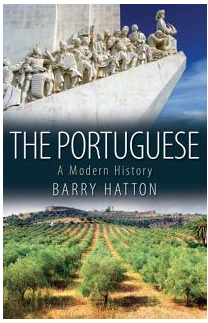
With an easygoing and seductive lifestyle expressed most fully in their love of food, the Portuguese also have an anarchical streak evident in many facets of contemporary life.
That 39% of disposable income is spent on food confirms it’s importance in daily life and rituals which are very much to the fore this time of the year. Food is not merely fuel, its a healthy obsession that provides a backdrop for most conversations. Whereas few in the UK would wait in line (unless to panic buy in the pandemic) here it is obligatory if you wish to get the best cut of meat, the freshest vegetables, or the right cake on the right day!
The food and wine are delicious, ridiculously cheap and though as yet I am unable to determine which “Kings Cake” one has on which day over Christmas and the New Year the inevitable wait is worth it.
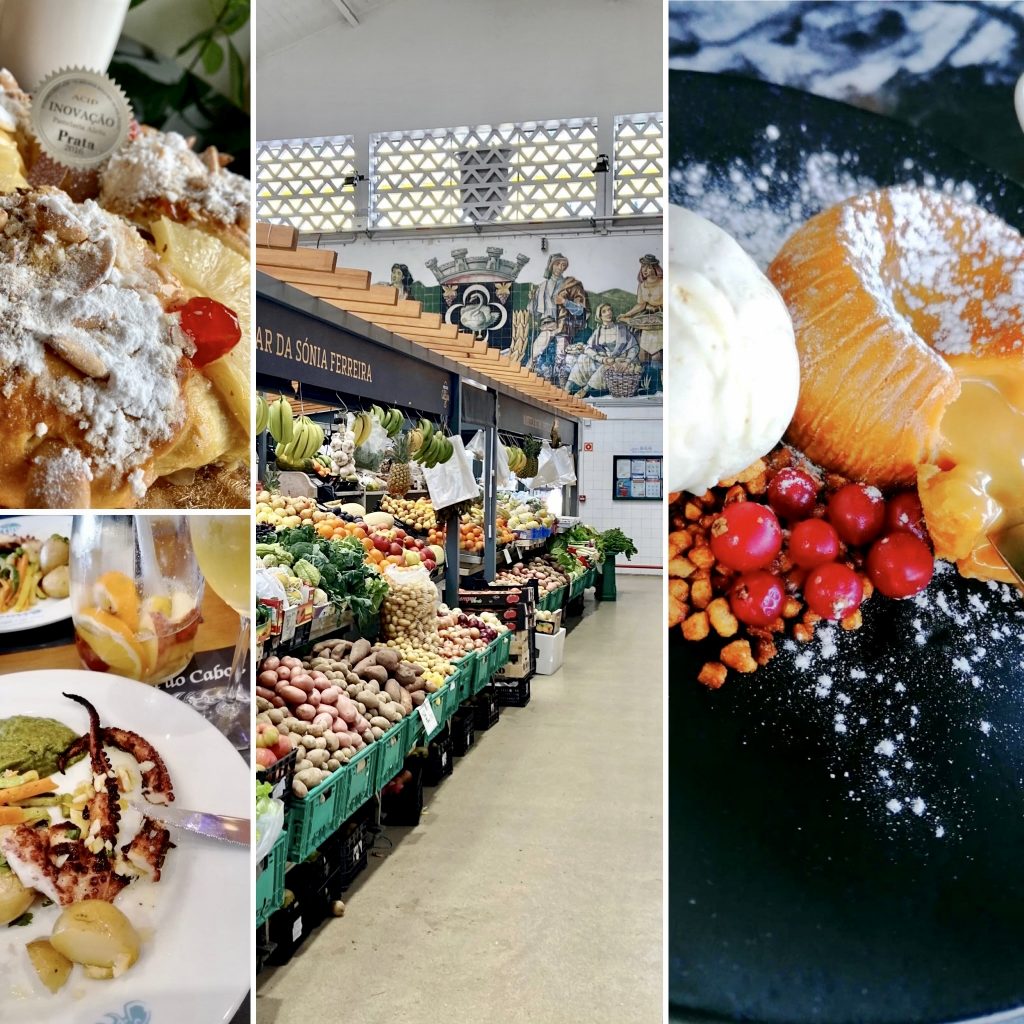
Perhaps the single biggest difference with the UK is that being in service is not viewed negatively and most of the established coffee shops / pastelerias are staffed by indigenous catering veterans.
2021: CILIP Presidency
It is ironic /sad that, concurrent with the commencement of my term of office as CILIP President, my good friend Karen McFarlane should be stepping back from involvement as a Trustee having completed her term of office. Karen was the instigator of my appointment as well as reviewer on the first book I co-authored Navigating the Minefield… Her contribution to the Knowledge & Information Management profession has been immense and I will be proud to continue to serve alongside her on the BSI KM Standards Committee as well as CILIP’s Knowledge Management Chartership & Fellowship Accreditation Project board.
I did not know my predecessor Judy Broady-Preston prior to my nomination a year ago. In the intervening period I have come to respect both her humanity and intellect and thoroughly enjoyed the many virtual conversations (and occasional dinner) despite Covid restrictions. I am delighted Judy will continue to be involved as part of the Presidential team. More on that in due course in CILIP’s flagship publication, Information Professional.
A few weeks back Judy, Nick Poole and I had a long discussion about the Presidential role. I’d previously suggested that where possible the theme for a Presidential year should map back to the aims and objectives of CILIP and dovetail with previous and future incumbents. I am delighted to report that Kate Robinson (President Elect) is onboard with this approach and that my year will overlap with both Judy’s and Kate’s in terms of objectives. Professionalising the profession (at home and internationally) will be at the core and I will seek to build on what Judy has acheived.
I’ve previously spoken and written about:
- the absence of a home / body that Knowledge Management professionals can coalesce around;
- the need for a universally recognised professional qualification; and
- the importance of a set of international standards that organisations engaged in Knowledge Management might adhere to and benchmark against.
“Striving down the path to corporate legitimacy” is a phrase I’ve used before and it will be at the heart of my efforts to position CILIP at the centre of this move.
And finally
Inevitably discussions and the news over the festive season were dominated by the depressing statistics on the spread of the pandemic emerging aound the globe. As I write this Portugal is in a 3 day curfew with movement of unauthorised vehicles prohibited from 1pm to 5am daily. Our town Eastbourne recently entered Tier 4 so on our return this weekend we will be in quaratine though fortunately we can work virtually.
In case you are wondering, the phrase shown in the title was spoken by a friend at a socially distanced and compliant family dinner a few nights back. Her 88 year old father had recently passed, her husband was hospitalised for 5 days and another good friend had died as a result of not attending hospital due to a fear of contracting Covid. Her point (and this is where translating from one language to another can be imperfect) was that the mortality rate of Covid is very low. By focusing exclusively on that, the impact on other conditions will be adversly affected not to mention the lives of the rest of the population.
I asked everyone at dinner how they would rate the performance of the government. 7/10 was the consensus. Though mistakes have been made, Prime Minister Antonio Costa has acknowledged them. This has engendered a feeling of trust I sense absent in the UK.
2021 has the potential to be a bounce back year but it will require a shift in mindset and the state of political rhetoric. I am looking forward to kicking it off with more KM Cookbook virtual Masterclasses this month with Chris Collison and future collaboration with the likes of Lee Bryant, Martin White and Luis Suarez.
I wish you and your family “Feliz Ano Novo”.

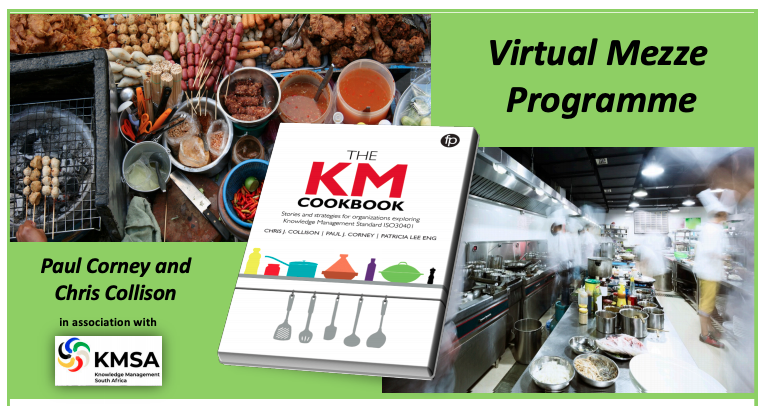
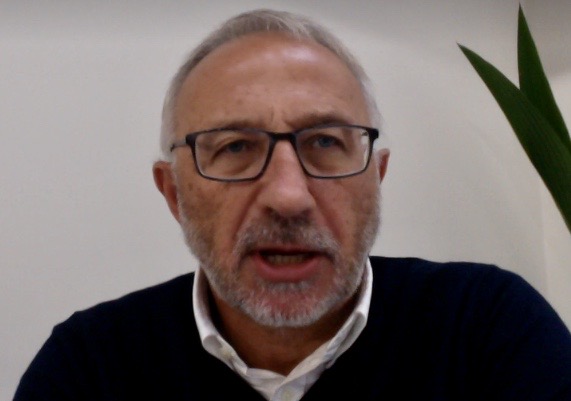

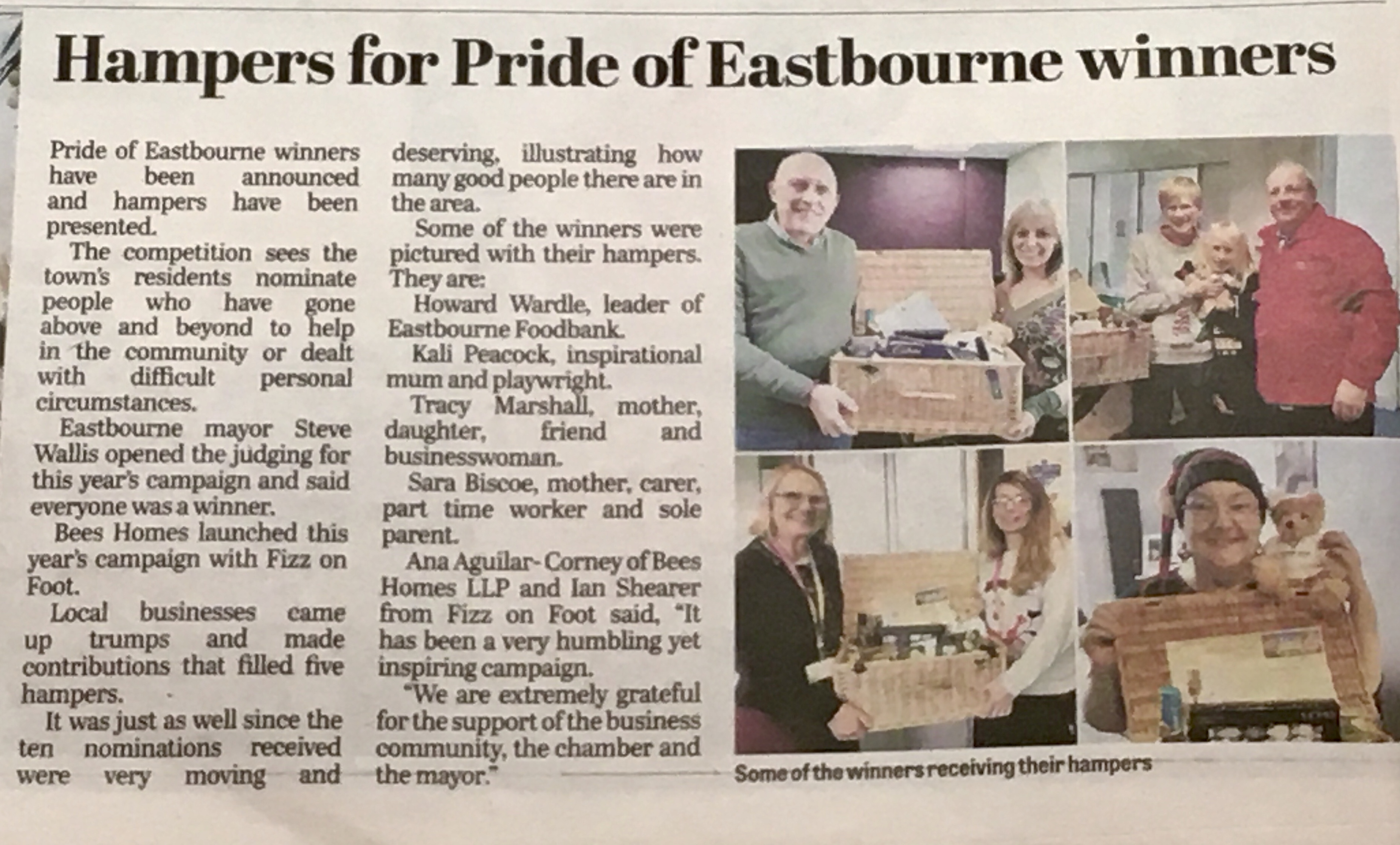
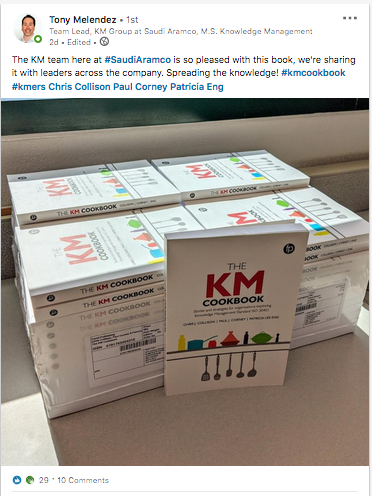
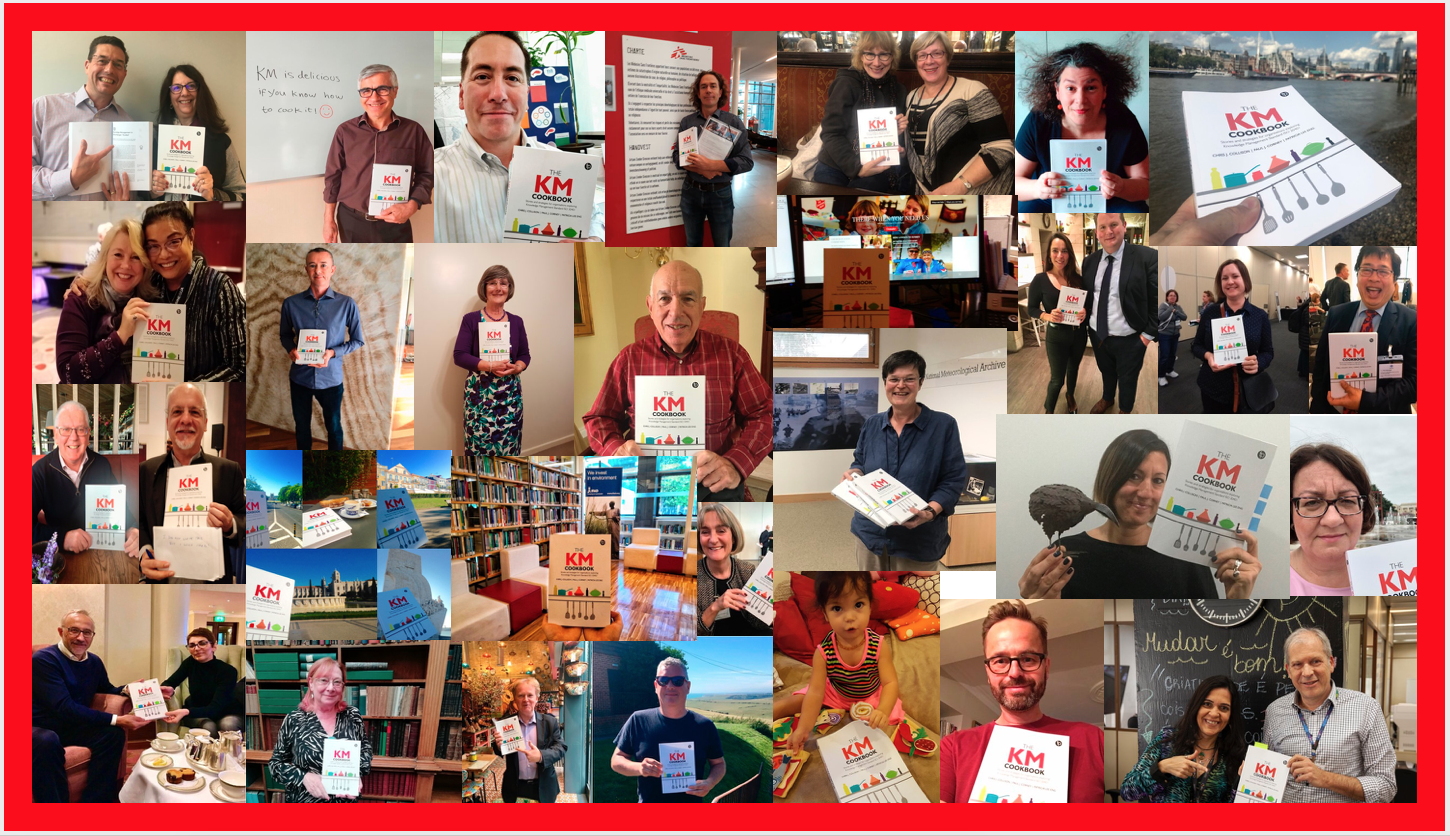
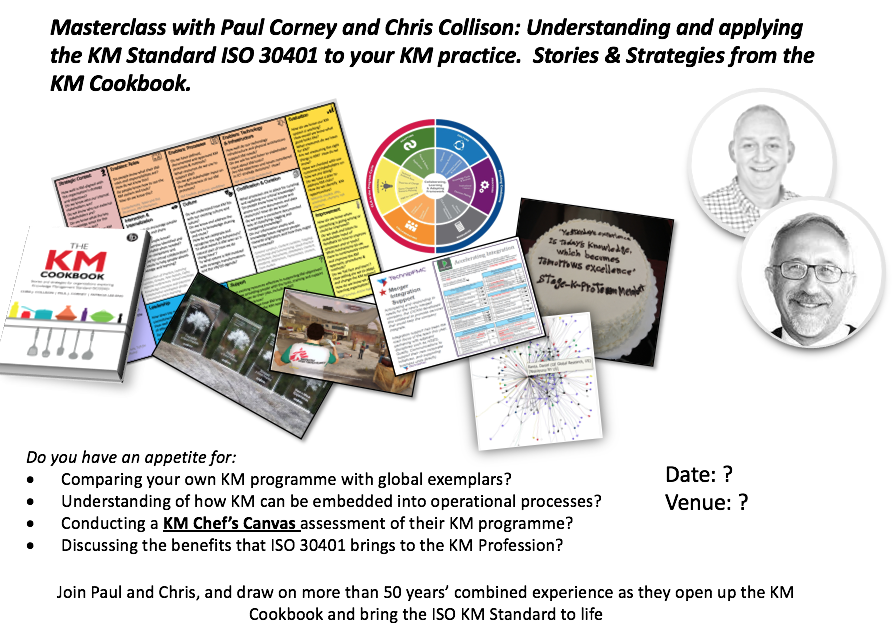




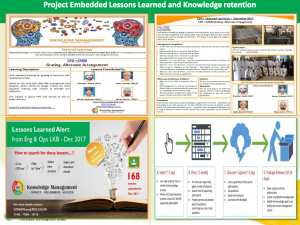

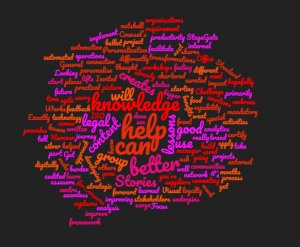 I thought it might be interesting to run the top tweets from #KMSummit18 through a wordle to see what stood out. Interestingly it did not surface any of the 4 words that arose from my conversations:
I thought it might be interesting to run the top tweets from #KMSummit18 through a wordle to see what stood out. Interestingly it did not surface any of the 4 words that arose from my conversations:
